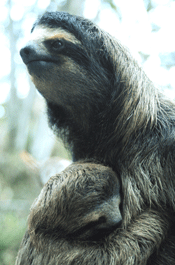


This program will comprise an investigation of how evolutionary theory can be generated and applied to better understand how and why animals do what they do. Humans are animals; as such, we will be including discussion of humans in this program. Unfortunately, there is no longer a study-abroad component of the program in Winter quarter; due to the recession and related budget cuts, we can not travel as a whole program to Central America. However, students who are prepared to work independently in Central America will have the option of conducting empirical field research in a tropical rainforest in Spring quarter.
We will likely run another iteration of this program in the 2012-2013 academic year, with study abroad in the tropics in Winter quarter.
Applications for the program were due on Friday, May 14.